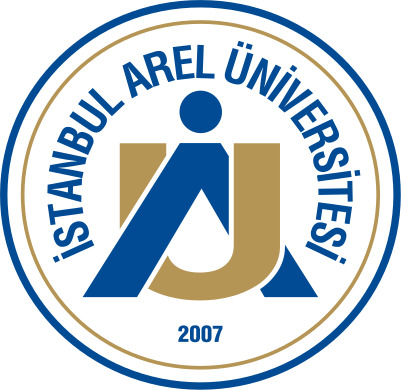Radio and Television Programming
Overview
<!-- wp:paragraph --> <p><strong>Program Description</strong><br><strong>Radio and Television Programming at Istanbul Arel University: Shaping the Future of Broadcast Media</strong></p> <!-- /wp:paragraph --> <!-- wp:paragraph --> <p>The Radio and Television Programming program at Istanbul Arel University is designed to equip students with the essential skills and knowledge to thrive in the fast-paced world of broadcast media. As the media landscape continues to evolve, the demand for creative and technical professionals in radio and television programming grows. This program combines theoretical knowledge with hands-on experience, providing students with a comprehensive understanding of content creation, broadcasting techniques, and the dynamic nature of the media industry. Students will learn to produce, direct, and present programs, while also exploring the business, technological, and ethical aspects of radio and television production.</p> <!-- /wp:paragraph --> <!-- wp:paragraph --> <p><strong>Program Mission and Vision</strong><br>The mission of the Radio and Television Programming program at Istanbul Arel University is to develop well-rounded media professionals who can adapt to the diverse demands of the radio and television industries. The program focuses on the creative, technical, and operational aspects of media production, ensuring that graduates are equipped to create engaging content across various platforms. Its vision is to produce forward-thinking broadcasters who can shape the future of radio and television through innovation, storytelling, and effective communication, while addressing the challenges and opportunities presented by new technologies and audience trends.</p> <!-- /wp:paragraph --> <!-- wp:paragraph --> <p><strong>Curriculum Structure</strong><br>The curriculum provides students with a well-rounded education in radio and television programming, blending creativity, technical expertise, and business acumen. Students will learn how to develop, produce, and present a wide range of content for broadcast, including news, entertainment, talk shows, documentaries, and more. Key areas of study include:</p> <!-- /wp:paragraph --> <!-- wp:paragraph --> <p><strong>Introduction to Radio and Television</strong>: This foundational course provides an overview of the history, structure, and evolution of radio and television broadcasting. Students learn about the key components of the industry, including programming, production, and distribution, as well as the role of radio and television in shaping public opinion and culture.</p> <!-- /wp:paragraph --> <!-- wp:paragraph --> <p><strong>Broadcast Journalism</strong>: In this course, students learn the principles of broadcast journalism, including news writing, reporting, and presentation for radio and television. Students gain practical skills in gathering news, conducting interviews, and delivering reports live or recorded for broadcast.</p> <!-- /wp:paragraph --> <!-- wp:paragraph --> <p><strong>Radio Production and Programming</strong>: Students explore the unique aspects of radio production, from scriptwriting to sound design. The course covers the technical skills needed to operate studio equipment, produce programs, and manage radio programming schedules. Students also learn to craft compelling radio content, including talk shows, interviews, music programs, and news segments.</p> <!-- /wp:paragraph --> <!-- wp:paragraph --> <p><strong>Television Production and Programming</strong>: This course focuses on the television production process, from pre-production planning to live broadcasts and post-production editing. Students gain hands-on experience in operating cameras, lighting, and sound equipment, as well as editing video and managing television programming.</p> <!-- /wp:paragraph --> <!-- wp:paragraph --> <p><strong>Media Ethics and Law</strong>: Students learn about the ethical and legal considerations that affect the radio and television industries. Topics include copyright law, defamation, privacy rights, broadcasting regulations, and the ethical responsibilities of broadcasters in presenting accurate, fair, and balanced content.</p> <!-- /wp:paragraph --> <!-- wp:paragraph --> <p><strong>Broadcast Technology and Equipment</strong>: This course introduces students to the technology and equipment used in radio and television production, including soundboards, cameras, editing software, and broadcasting platforms. Students learn how to operate industry-standard equipment and understand the technical aspects of broadcasting.</p> <!-- /wp:paragraph --> <!-- wp:paragraph --> <p><strong>Scriptwriting for Broadcast Media</strong>: Students learn the art of writing scripts for radio and television programs, including news scripts, talk show scripts, and entertainment programming. Emphasis is placed on writing engaging content that captures the attention of listeners and viewers.</p> <!-- /wp:paragraph --> <!-- wp:paragraph --> <p><strong>Broadcast Management and Production Coordination</strong>: This course focuses on the business and logistical aspects of running a broadcast production. Students learn about budgeting, scheduling, and coordinating production teams. They also gain an understanding of the organizational structure of radio and television stations and how programming decisions are made.</p> <!-- /wp:paragraph --> <!-- wp:paragraph --> <p><strong>Media Marketing and Audience Research</strong>: Students learn how to analyze audience behavior and use research techniques to improve radio and television programming. The course covers strategies for targeting specific demographics, enhancing program appeal, and maximizing audience engagement through marketing and promotions.</p> <!-- /wp:paragraph --> <!-- wp:paragraph --> <p><strong>Social Media and Digital Broadcasting</strong>: With the rise of online platforms and streaming services, this course examines the integration of digital technologies with traditional broadcasting. Students learn how to leverage social media, podcasts, streaming platforms, and online content distribution channels to reach and engage broader audiences.</p> <!-- /wp:paragraph --> <!-- wp:paragraph --> <p><strong>Television Directing and Production Techniques</strong>: Students explore the role of a television director and the techniques involved in creating engaging visual content. The course covers camera work, shot composition, blocking, and directing talent for both scripted and unscripted programming.</p> <!-- /wp:paragraph --> <!-- wp:paragraph --> <p><strong>Radio and Television Advertising</strong>: This course examines the role of advertising in radio and television, focusing on how commercials and sponsored content are integrated into programming. Students learn about advertising sales, marketing strategies, and the legal and ethical considerations in advertising content.</p> <!-- /wp:paragraph --> <!-- wp:paragraph --> <p><strong>Capstone Project and Portfolio Development</strong>: In their final year, students undertake a capstone project in which they design and produce a fully realized radio or television program. This project allows students to demonstrate their creativity, technical expertise, and ability to work collaboratively. Students will also develop a portfolio showcasing their best work, which will be crucial for entering the job market.</p> <!-- /wp:paragraph --> <!-- wp:paragraph --> <p><strong>Internship and Practical Experience</strong>: Practical experience is a key component of the program. Students complete internships with radio and television stations, production companies, or digital media agencies, gaining real-world experience and developing professional connections in the media industry.</p> <!-- /wp:paragraph --> <!-- wp:paragraph --> <p><strong>State-of-the-Art Facilities and Labs</strong><br>Istanbul Arel University provides students with access to cutting-edge broadcast studios, editing suites, and production equipment, offering a hands-on learning experience that mirrors the professional media environment. Students also have access to modern technology, including cameras, audio equipment, and editing software, enabling them to produce high-quality content.</p> <!-- /wp:paragraph --> <!-- wp:paragraph --> <p><strong>Emphasis on Creativity and Innovation</strong><br>The program encourages students to explore their creativity and push the boundaries of traditional broadcasting. Students are encouraged to develop original program formats, experiment with new technologies, and create engaging content that resonates with diverse audiences. The program fosters a culture of innovation, preparing students to meet the challenges and opportunities of the evolving media landscape.</p> <!-- /wp:paragraph --> <!-- wp:paragraph --> <p><strong>Career Opportunities</strong><br>Graduates of the Radio and Television Programming program have a wide range of career opportunities in broadcast media, including roles as radio and television producers, directors, reporters, scriptwriters, editors, technical operators, and programming managers. Graduates may find employment in radio and television stations, production companies, advertising agencies, digital media firms, or pursue freelance work or entrepreneurship in media production.</p> <!-- /wp:paragraph --> <!-- wp:paragraph --> <p><strong>Shaping the Future of Broadcast Media</strong><br>Istanbul Arel University’s Radio and Television Programming program prepares students to become the next generation of media professionals. By combining creative storytelling, technical expertise, and strategic thinking, graduates are equipped to excel in radio, television, and digital broadcasting. With the skills to produce compelling content and engage with modern audiences, students are ready to make their mark on the future of broadcast media.</p> <!-- /wp:paragraph -->
Program Description
The Radio and Television Programming program at İstanbul Arel University offers a comprehensive curriculum designed to prepare students for successful careers in this dynamic field. The program combines theoretical knowledge with practical skills, ensuring graduates are ready for the challenges of the industry.
The program is taught by experienced faculty members who are leaders in their respective fields, providing students with insights into current industry practices and future trends.
Curriculum Highlights
- Advanced Research Methods: Learn cutting-edge research techniques and methodologies.
- Industry Analysis: Explore current industry trends and develop analytical skills.
- Leadership and Management: Develop essential leadership skills for managing teams and projects.
- Innovation and Entrepreneurship: Cultivate creative thinking and entrepreneurial mindset.
- Digital Transformation: Understand how technology is reshaping industries and businesses.
- Sustainable Development: Explore environmentally sustainable practices and their implementation.
- Global Markets: Study international market dynamics and global business operations.
- Technology Integration: Learn to leverage technology for improved business outcomes.
Requirements:
- Bachelor's degree (for Master's programs) or equivalent qualifications.
- Proven English language proficiency (IELTS 6.5+ or equivalent).
- Complete transcripts from previous education.
- A compelling letter of motivation explaining your interest in the program.
- Two letters of recommendation from academic or professional references.
- Valid passport with appropriate visa status or eligibility.
Benefits:
- World-class faculty with extensive industry experience.
- Modern campus facilities and cutting-edge learning environments.
- Strong industry partnerships providing networking opportunities.
- Internship opportunities with leading companies in the field.
- Comprehensive career services including job placement assistance.
- Access to a global alumni network for lifelong professional connections.
Begin your educational journey today.
Apply now and take the first step towards your future.






